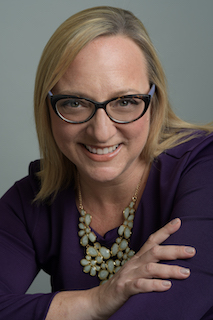Parenting / Families
Brief preventative intervention for parents of youth with ASD during the COVID-19 pandemic: Preliminary findings
(PS10-B40) Brief Preventative Intervention for Parents of Youth with ASD During the COVID-19 Pandemic: Preliminary Findings
- TV
Teresa Vazquez, None
Research Assistant
University of Miami
Coral Gables, Florida - SC
Sandra L. Cepeda, M.S.
Predoctoral Trainee
University of Miami
Davie, Florida - NT
Nicole Torek, M.S.
Research Coordinator
University of Miami
Coral Gables, Florida - AK
Aileen Kangavary, B.A.
Research Coordinator
University of Miami
Coral Gables, Florida 
Elizabeth R. Halliday, M.S.
Clinical Psychology Graduate Student
University of Miami
Miami, Florida- JD
Jennifer S. Durocher, Ph.D.
Clinical Associate Professor
University of Miami
Coral Gables, Florida 
Jill Ehrenreich-May, Ph.D.
Professor
University of Miami
Coral Gables, Florida
Author(s)
Co-Author(s)
Parents of youth with autism spectrum disorders (ASD) were faced with unique parenting challenges, decreased support, and increased risk for elevated anxiety and depression during the COVID-19 pandemic. In response, a cognitive behavior therapy (CBT) based brief selective prevention program was developed to meet the need for telehealth-delivered support focused on these unique stressors among parents of youth with ASD. This study aimed to characterize a sample of prevention-seeking parents of youth with ASD and examine changes in self-reported anxiety and depression from pre- to post-treatment.
A total of 35 parents, aged 25-56 years (M=42.6, SD=6.7) participated in a selective prevention program for parents of youth with ASD. Participants received 4 group-delivered telehealth sessions based on the Unified Protocols for Transdiagnostic Treatment of Emotional Disorders in Children and Adults (UP-Caregiver). Each session offered 60 minutes of parent-directed CBT strategies and 30 minutes of parenting strategies to 2-4 parents per group. Before starting treatment, parents completed online questionnaires to collect demographics and assess depression and anxiety via the Patient Health Questionnaire (PHQ-9) and Generalized Anxiety Disorder (GAD-7) scale. Parents were readministered the PHQ-9 and GAD-7 upon completing sessions or post-treatment. Data were collected from February 2021 to 2022.
Participating parents were mostly female (85.7%), White (67.9%), and Hispanic/Latinx (71.4%). 82.9% of participants reported parenting one child with ASD; the remaining reported two children. Youth with ASD were aged 2-15 years (M=8.7, SD=3.6). At baseline, 45.7% of parents reported at least moderate symptoms of depression per PHQ-9 scores, with 31.4% in the moderately severe-to-severe range. Approximately 51.4% of parents reported moderate-to-moderately severe symptoms of anxiety at baseline, per GAD-7 scores. Parents completed an average of 2.8 sessions; 69.4% completed at least 3 sessions. Using intent-to-treat analyses and paired-samples t-tests, we compared mean total scores on the PHQ-9 and GAD-7 at pre- and post-treatment. Though depression scores improved from pre- to post-assessment, the difference in PHQ-9 total score from baseline (M=10.5, SD=7.8) to post-treatment (M=9.9, SD=7.9) was not significant; t(34) = -1.36, p = .18. A significant difference was found in GAD-7 total scores overall from baseline (M=11.1, SD=5.3) to post-treatment (M=9.8, SD=5.2); t(34) = -2.52, p = .02.
Nearly half of parents in the sample had moderate to severe anxiety and depressive symptoms. UP-Caregiver appeared to be feasible and beneficial for this small but diverse sample. On average, parent anxiety showed a significant reduction from pre- to post-treatment. Lack of significant reduction in depression symptoms may be due to the smaller sample size or insufficient sessions to foster change. Evidence-based support programs for parents of youth with ASD are rare. Many participating parents were accustomed to programming aimed at their child rather than them and expressed appreciation for targeted support. Future research should examine UP-Caregiver in a larger sample of parents of youth with ASD at risk for internalizing symptomatology.

